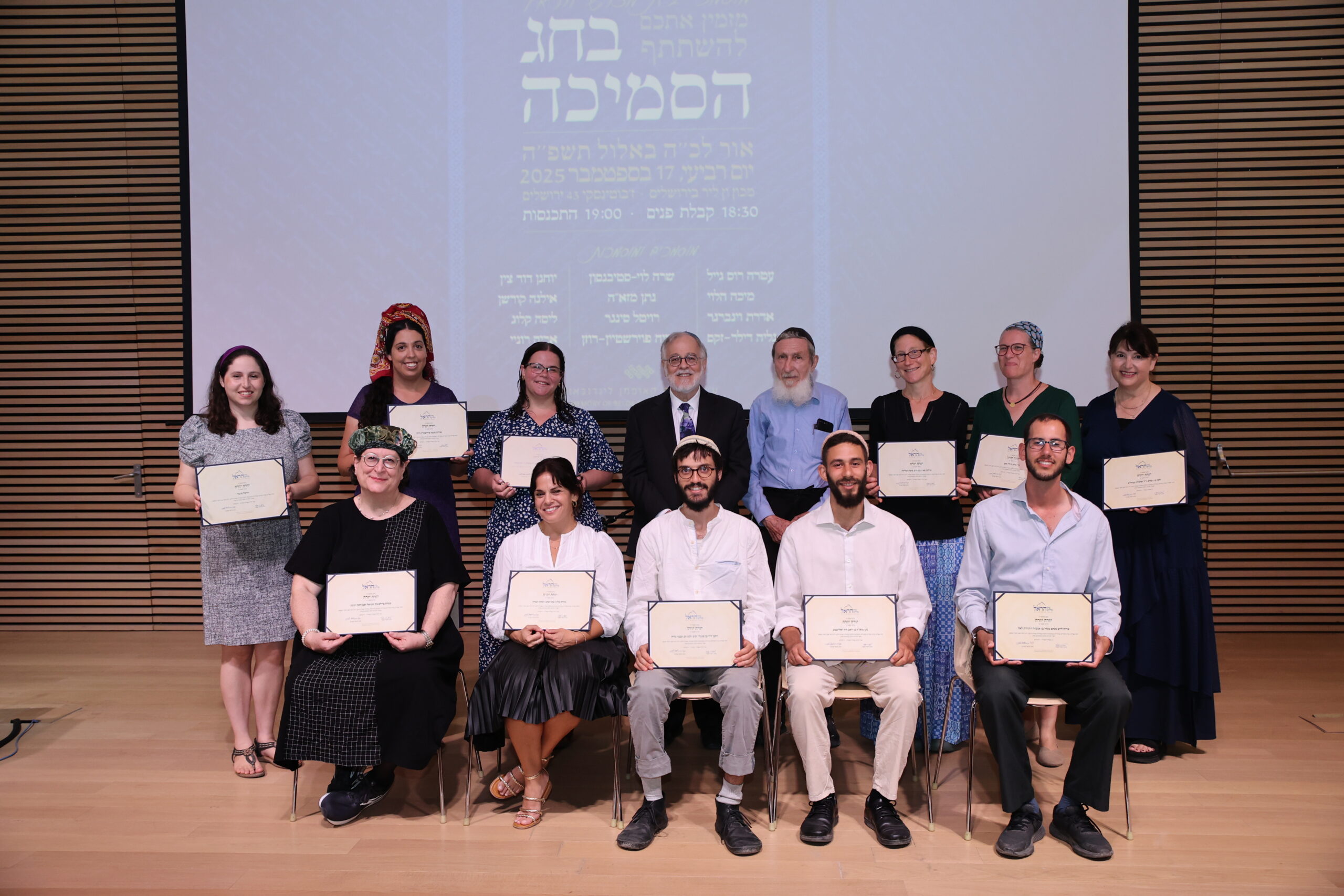Parashat Noah: Words Have Meaning

The biblical story of the Tower of Babel is the story of the catastrophic collapse of a fledging civilization from within. We in Israel would do well to read this story carefully and heed its lessons.
The story revolves around the uses of language, common cause and hubris.
And the whole earth was of one language [safa ahat] and of one speech. (Gen. 11)
Language plays a determining role in the evolution of civilization. It is glue which holds people together. Language can also be an instrument of strife, divisiveness and imposition of mastery through manipulation.
The two uses of language are reflected in two Hebrew words: Safa and Lashon. Safa literally means “Lip” while Lashon means “Tongue.” The distinction is significant. The great Hasidic master, Rabbi Mordechai Yosef of Ishbitz (1800-1854) explained that that “Tongue” denotes authentic expression of a person’s internal reality because it is an internal organ. The tongue, he says, is the quill of the heart. In contradistinction, the lips are on the surface of our anatomy.
The language of the “Lips” is inauthentic speech which does not faithfully represent the interior thoughts and feelings of the individual. We are all familiar with the term, “Lip service.” A person engaging in “Lip service” is using language dishonestly as an instrument of manipulation and creation of false impressions.
The word the Torah uses for language in the Tower narrative is safa – lip. This indicates that even though Babylonian civilization seemed united by common language and purpose, it was in fact held together artificially by external force and manipulation. The dispersion that Babylon suffered should not be understood as an active punishment imposed by God, but, more subtly, as a natural playing out of the true reality of alienation and divisiveness in their society. An apt illustration of this would be the fall of the former Soviet Union. As long as force was imposed, the various republics remained part of the USSR. However, the moment terror and threat of force were removed, the empire unraveled.
Enemies of democracy use language to manipulate, divide and conquer. Sometimes the distortions are subtle and sometimes they are glaring. Are the Hamas murderers “fighters?” “Militants?” “Terrorists?” As George Orwell illustrated so well in his novel 1984, words clearly matter.
In democratic societies, language can also be abused in order to promote a self-serving agenda and at times naively by people who are not sufficiently reflective. It is important to examine a number of words being used today and assure that we understand their meaning.
“Vengeance”
In the aftermath of the Hamas atrocities we hear understandable calls for vengeance. Some people advocate turning Gaza into a parking lot, perpetrating another “Naqba” upon the Palestinians with disregard of lives of civilians in Gaza. I understand and share the grief and heartache, the rage and disbelief that human beings could behave with such barbarity towards us; my heart aches with distress and worry for those who were taken captive. So, I understand those feelings.
When we hear calls for vengeance, we need to be conscious of what that means. Three things about vengeance:
1) In the Torah, vengeance, whether meted out by God or by humans, is always against the perpetrators of the wrong and the guilty. If someone slaughters a family, we do not murder their family in return. We hold the murderer accountable and carry out judgement upon them. The Laws of Murder teach us this. Numbers 35:19 tells us that, “The avenger of blood himself shall slay the murderer.” The Torah understands that the desire for vengeance is a very potent emotion and, if not sublimated in the service of the administration of justice, will wreak havoc in society generating endless cycles of violence. That why the Avenger of the blood is the one who is given the opportunity to administer the punishment to the murderer; as a safety valve for the expression of vengeance. BUT only after the court finds him guilty. This is true in the case of the individual criminal. This means in warfare, we need to distinguish between the murderers and their enablers on the one hand and the non-combatant population on the other.
2) Vengeance when it is pursued, must be devoid of self-interest. When the Torah commands vengeance, it entirely prohibits or severely limits taking the spoils of war. King Saul, the first Israelite monarch, loses his throne because he allowed the people to partake of the spoils of Amalek (I Samuel 15). At the end of the Esther story, the megilah emphasizes repeatedly that the people did not partake of the spoils.
The voices calling for the reoccupation of Gaza and rebuilding Gush Katif, in addition to being disconnected from reality, undermine the moral justification for the actions we are taking in self-defense. This war dare not become one of aggression but must remain one of legitimate self-defense and retribution against the war criminals of Hamas.
3) Vengeance corrupts, even when necessary and virtuous. Drawing moral equivalence between murderers and victims engaging in self-defense is sickening. However, we scar our souls not only when we do the wrong thing; tragically, we suffer when we do the right thing. We need to take to heart the wise words of the Torah sage, Rabbi Naphtali Tzvi Yehuda Berlin (1816 – 1893). The Netziv explains why God needed to grant Pinchas a covenant of peace after his “zealous” killing of Zimri and Kosbi (Numbers 25). He wrote, “It is in the nature of the act of killing another soul to leave a traumatizing imprint upon the heart. However, since Pinchas did what he did for the sake of Heaven, God blessed him that he should be at peace…”
We need to protect our souls and be mindful that our desire for vengeance does not consume us.

“Victory”
In war it is of course necessary to galvanize the population to common cause. Calls for “Victory” should be understood this way and not as talking points.
Yet after the terrible tragedies we have endured at the bloody hand of Hamas, what does “Victory” even mean? The destruction of Hamas is certainly a worthy tactical goal, but what are our strategic goals? The government has a responsibility to spell these out. What does the landscape look like after the dust settles and the smoke clears?
Victory is an empty word unless it is honestly defined. To what degree do some of our leaders use the word “Victory”, as well as “Vengeance,” to manipulate and deflect criticism from themselves.
“Nazi”
This one is really hard. My father was the only survivor of nine children in the Shoah. He witnessed his mother being shot outside the Polish town of Sanok on the 14th day of Cheshvan 1942. Since last week I have been having nightmares.
The word, “Nazi” is an obscene word, consecrated in the most unholy way. As such we must be wary not to take the name in vain.
Hamas are not Nazis. To be sure, their acts of barbarism draw comparisons to the behavior of the Nazis. However, Nazi hatred for the Jews was pathological and nurtured by abhorrent racial theories which viewed Jews as infectious vermin that needed to be eliminated everywhere for the sake of humanity. This is not the case with Hamas – they “just” want to eliminate us in the land of Israel.
One can be very, Very, VERY evil and still not be a Nazi. Hamas are not Nazis. Putin is not a Nazi; the Iranians and Taliban are not Nazis; our own home-grown Jewish Supremacists are not Nazis either. Neither are all evil to the same extent.
We should be wary of the use of this term as a trigger or means of manipulation. It is vital for us, especially when we employ force against our enemies, to maintain a clear moral vision of their nature and the nature of their evil.
“Holocaust”
Allusions to the holocaust are painful. traumatizing and inaccurate. In the Holocaust we were helpless victims. A modern, militarized, technologically advanced nation state had singled us out for extermination. There was no one to protect us and we did not have the means to protect ourselves.
What happened last week was not a Holocaust. It was a deadly massacre perpetrated by bloodthirsty terrorists. It was made possible by grave tactical misjudgment by our intelligence and military establishment, by a government distracted and lacking an effective strategy of how to deal with Gaza and the Hamas over the long-term.
Today, we have a country of our own and an army we should be proud of – we should be able to ensure that such horrors do not happen again. Which brings me to the final word on my list:
“Responsibility”
With the freedom we enjoy as an independent country with considerable means to defend ourselves, comes responsibility. Mature and responsible leadership accepts responsibility to apply force when necessary, responsibility to refrain from force when not necessary and responsibility to acknowledge and accept the consequences of our failures.
***
Hamas does not possess the military strength to defeat the State of Israel. They know this. Their goal is to precipitate our internal collapse through the spread of fear, divisiveness and despair.
We need to join together not merely united by common enemies but through our common humanity, nationhood and identity. Our moral conceptions need to be clear and our words need to reflect and express who we are. They need to come from not only from our lips but must emerge from our hearts.
Rabbi Herzl Hefter is Rosh Beit Midrash at Beit Midrash Har’el, the only orthodox Rabbinic Fellowship program for men and women who study together. The Beit Midrash offers high level learning and study for thoughtful students and provides a compassionate and compelling voice in our community, steeped in Torah and a willingness to grapple with thorny issues. More information can be found at www.har-el.org.



